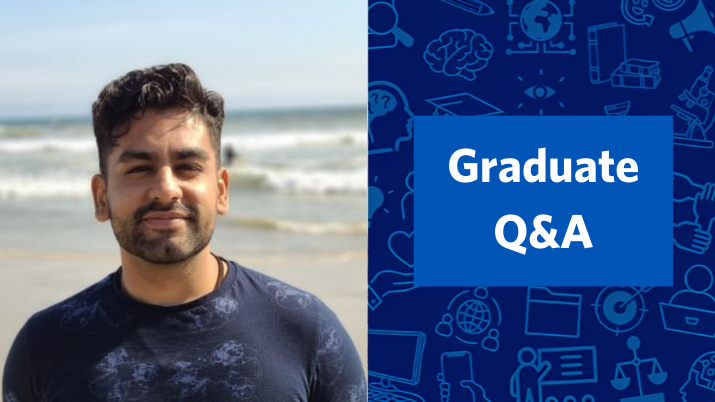

Omran Safi, PhD Student at UBC Psychology
Join us in congratulating Omran Safi for publishing his first first-author paper and learn more about his experience pursuing a PhD at the Department of Psychology!
Omran Safi is a PhD student in the Memory and Imagination Lab working under the supervision of Dr. Daniela Palombo. Omran did his undergraduate degree in Psychology at UBC. Omran became interested in research towards the latter half of his degree and worked in the Motivated Cognition Lab run by Dr. Rebecca Todd. He also had the opportunity to work very closely with Dr. James Kryklywy of Lakehead University. Omran mentions that the skills and experience, along with Dr. Kryklywy’s mentorship, were invaluable and allowed him to pursue further research ultimately launching him into his current role as a PhD student.
Read our Q&A with Omran on his experience studying psychology at UBC, his research interests, his experience publishing his first-author paper, and more.
What inspired you to pursue a PhD in psychology with UBC?
Spending my undergrad here allowed me to realize the breadth and depth of research being conducted in our department. I had so many interests and there was so much to learn from everyone! Ultimately, these interests led me to Dr. Palombo’s lab where it became apparent I would enjoy working and exploring my ideas.
“I was encouraged by the fact that this strong research was fostered in a collaborative and friendly ethos.”
Please provide a high-level description of your research interests.
I am interested in elucidating the threads that weave our sense of subjective time when remembering moments in our lives. We stretch out certain events and compress others compared to the actual temporal unfolding of the experience. My research focuses on what factors affect how we remember time for disparate episodes within our lives.
Can you share the experience of working with other researchers and your PI on this project?
It has been a wonderful experience getting to work with everyone. This project would not have been possible without the hard work and dedication of my team, particularly our undergraduate research assistants from Psychology and Computer Science. Our team’s collaborative and interdisciplinary nature was a key component of the project’s success. I am very grateful to have had the opportunity to work with and learn from everyone involved in the project.
What would you say are the key findings of your study?
Previous work looking at how we remember time has faced difficulty and often needed to make a trade-off between experimental control and ecological validity.
“Using a novel virtual reality paradigm, we found that negative-emotional events were remembered as being longer than neutral events despite both being remembered as being shorter than they actually were. ”
These results further demonstrate the importance of emotion and how it shapes how we remember the temporal unfolding of events from our past.
What advice would you give to other PhD students aspiring to publish their research?
My advice would be to not worry about publishing. Whether you publish something or not is seldom a reflection of the quality of your ideas or your work ethic as a researcher. Some ideas and projects will develop and get published and others will not. Stay the course and focus on doing the best science you can do so that when the time comes to publish you are confident in what you are putting out into the world.


